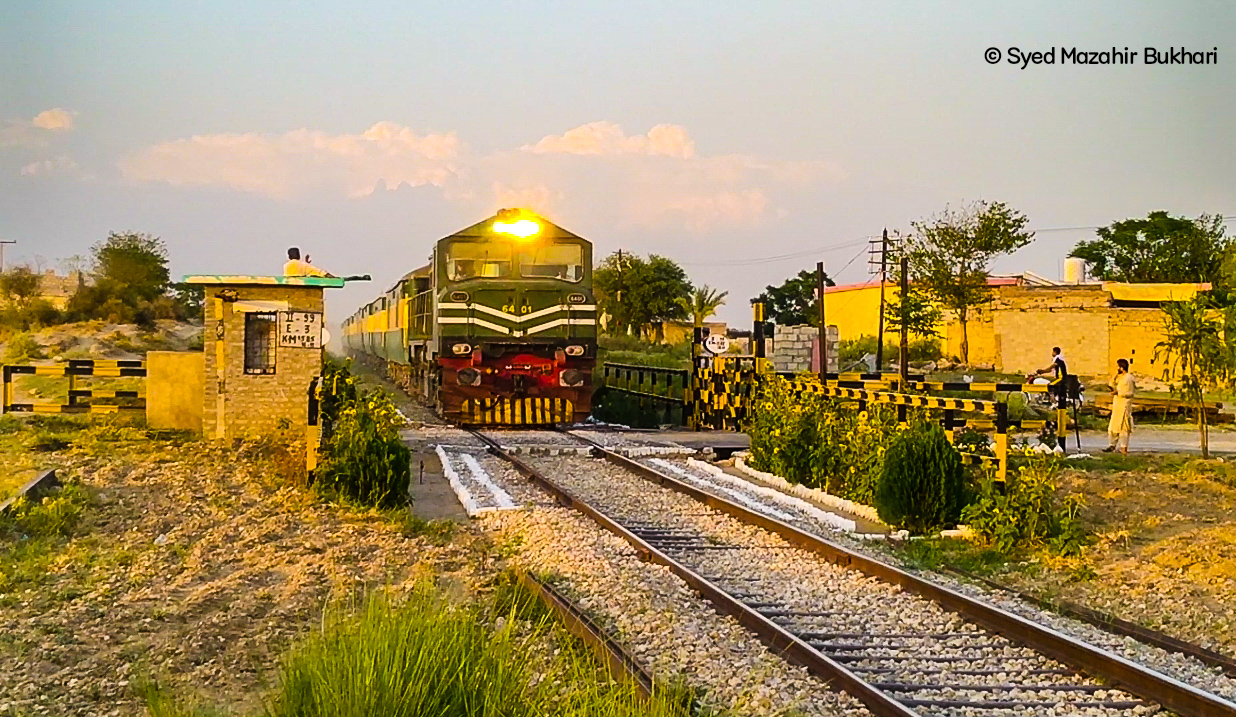In a brazen act of violence that has once again shaken Pakistan’s troubled security landscape, armed gunmen attacked the Quetta-Peshawar Jaffar Express on Tuesday in the Bolan region of Balochistan. The incident, which saw the attackers first sabotage the railway track and then open fire on the train carrying over 400 passengers, has left the nation reeling. Reports confirm that the train driver sustained injuries during the assault, as chaos erupted on board and in the surrounding area.
A Calculated Assault on a Vital Transport Link
The Jaffar Express, an important artery connecting Quetta in Balochistan with Peshawar in Khyber Pakhtunkhwa, has long served as a critical mode of transport for thousands of commuters and families traveling for work, education, and personal reasons. However, the recent attack has cast a dark shadow over this lifeline, raising serious concerns about the safety and security of Pakistan’s railway network—a network already under strain from decades of neglect and sporadic militant threats.
Eyewitnesses reported that the attackers executed a two-pronged strategy. Initially, they targeted a section of the railway track, causing significant structural damage. This act of sabotage was aimed at destabilizing the train’s journey even before it came under direct attack. Once the disruption was evident and the train had slowed down, the gunmen launched a ferocious assault, opening fire indiscriminately on the moving train. The sudden onslaught left passengers scrambling for cover while security personnel struggled to contain the situation.
The Human Toll and Immediate Aftermath
While the full extent of casualties is still being assessed, initial reports have confirmed that the train driver was injured during the confrontation. Other sources, however, suggest that the chaos led to injuries among passengers as well, though these accounts remain unverified at this stage. Emergency response teams rushed to the scene, and local hospitals have been put on high alert to treat those wounded in the incident.
The horror of the attack has left survivors traumatized. Passengers described the event as a scene of utter pandemonium—a mixture of deafening gunfire, frantic screams, and the overwhelming smell of burning materials. Some recalled moments of sheer terror as they witnessed armed men darting along the train, firing into compartments filled with unsuspecting travelers. In the midst of this violent episode, the solidarity among passengers shone through as individuals helped one another to seek refuge and tend to the injured.
Security Challenges in Balochistan
Balochistan has long been a region fraught with insecurity. The province, rich in natural resources but marred by political instability and separatist tensions, has been a hotspot for militant activities for years. The recent attack on the Jaffar Express is seen by many analysts as part of a broader strategy by insurgent groups seeking to undermine state authority and disrupt the economic and social fabric of the region.
The Bolan area, in particular, has witnessed sporadic violence over the past few years. Its rugged terrain and sparse population make it an ideal hideout for militants, and the region’s strategic importance as a transit route only adds to its allure for groups with political and ideological agendas. The sabotage of the railway track coupled with the deliberate targeting of the train suggests a level of premeditation and tactical planning that could indicate the involvement of well-organized militant factions.
Unanswered Questions and Investigations Underway
Authorities have launched an intensive investigation into the incident, with the aim of uncovering the identities and motives of the attackers. Preliminary findings suggest that the assault was not a random act of violence, but rather a calculated attack designed to create maximum disruption. Security agencies are now combing through surveillance footage and eyewitness testimonies, while forensic teams examine the damaged track and any residual evidence at the scene.
In the wake of the attack, questions have arisen regarding the security measures in place along Pakistan’s railway network. Critics argue that the incident exposes glaring vulnerabilities in the system—vulnerabilities that can be exploited by those willing to jeopardize public safety for political gain. Calls for a comprehensive overhaul of railway security protocols have intensified, with experts urging the government to invest in modern surveillance technologies, enhance the training of security personnel, and improve coordination among various law enforcement agencies.
Political and Public Reactions
The attack has elicited swift reactions from political leaders and community figures across the country. National security officials have condemned the assault in the strongest possible terms, promising that those responsible will be brought to justice. Meanwhile, opposition parties have seized on the incident to criticize the government’s handling of security issues, arguing that such brazen attacks reflect a broader failure to safeguard critical infrastructure.
Public sentiment, too, is one of shock and dismay. Social media platforms have been flooded with calls for enhanced security, along with expressions of grief and solidarity from those affected by the violence. Many citizens have recalled previous incidents of militant attacks on public transport, lamenting the recurring threat that continues to undermine everyday life in parts of Pakistan.

Economic Implications and the Future of Rail Travel
Beyond the immediate human tragedy, the attack on the Jaffar Express is expected to have far-reaching economic consequences. Pakistan’s railways are a vital component of the nation’s transport infrastructure, facilitating the movement of goods and people across vast distances. Disruptions to this system not only hamper economic activities but also erode public confidence in the ability of the state to maintain order and ensure safety.
In the aftermath of the attack, transport authorities have announced that they will be suspending services along certain sections of the route pending a thorough security review. This decision, while necessary for public safety, is likely to have a knock-on effect on commerce, trade, and the livelihoods of those who depend on rail transport for their daily activities. As the investigation unfolds, industry experts and policymakers are already contemplating measures to restore trust in the railway system, including potential investments in advanced security infrastructure and emergency response protocols.
Broader Implications for National Security
The attack on the Jaffar Express is not an isolated incident—it is symptomatic of broader challenges facing national security in Pakistan. With multiple militant groups operating in various parts of the country, the state has long struggled to contain threats that target both civilian populations and critical infrastructure. The North-West region, in particular, has seen a spate of attacks on transport networks, which are seen as both symbolic and practical targets for insurgents.
This latest assault underscores the urgent need for a unified, strategic approach to counter-terrorism that transcends regional and administrative boundaries. Security experts have emphasized that the government must adopt a multi-faceted strategy that includes intelligence sharing, community engagement, and targeted operations against known militant hideouts. Only through such comprehensive measures can the cycle of violence be broken and the public’s faith in the state’s ability to provide security be restored.
The Human Cost: Stories from the Ground
Amid the headlines and strategic analyses, the human cost of the incident cannot be overlooked. Survivors of the attack have recounted harrowing experiences of the moments when gunfire erupted and chaos ensued. For many passengers, the event will remain a traumatic memory—a vivid reminder of how quickly everyday travel can turn into a nightmare. Families of those injured are now grappling with uncertainty, while the community mourns the loss of a fellow traveler who remains missing despite extensive search efforts.
Local organizations and humanitarian groups have mobilized to provide support to the affected individuals. Counseling services, medical aid, and financial assistance are being coordinated to help survivors recover from both the physical and emotional scars inflicted by the attack. These grassroots efforts highlight the resilience of the affected communities, even in the face of recurring violence.
Moving Forward: Calls for Reforms and Vigilance
As investigations continue and the nation comes to terms with the implications of the attack, there is a growing chorus of voices demanding urgent reforms in the country’s approach to security. Policymakers, security experts, and civil society organizations are calling for a thorough reassessment of current strategies, with an emphasis on proactive measures to prevent similar incidents in the future.
The need for increased investment in modern security technologies, improved infrastructure maintenance, and stronger inter-agency cooperation is now more pressing than ever. For many, the hope is that the tragedy of the Jaffar Express attack will serve as a catalyst for meaningful change—one that not only addresses the immediate vulnerabilities but also lays the foundation for a safer, more secure future.
Conclusion
The violent attack on the Jaffar Express in Balochistan is a stark reminder of the multifaceted challenges confronting Pakistan today. As armed militants continue to exploit vulnerabilities in critical infrastructure, the incident underscores the urgent need for comprehensive security reforms. With over 400 passengers caught in the crossfire and the loss of a crew member still unaccounted for, the human cost of this assault is both profound and unacceptable.










